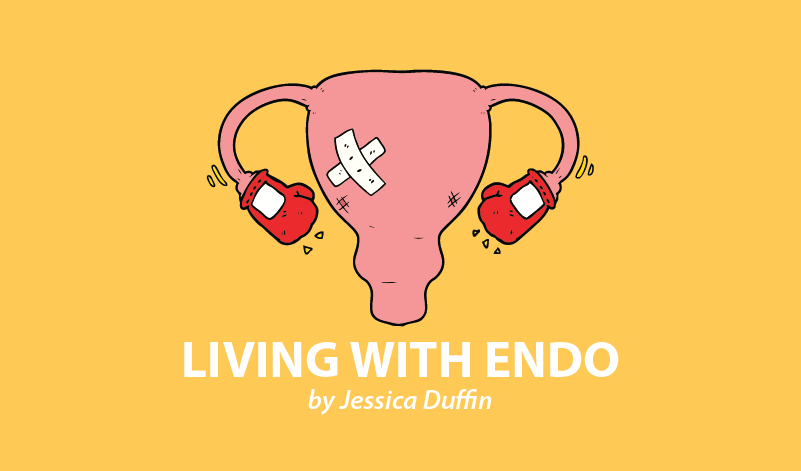
Last week, I spoke about my ups and downs with endometriosis and friendships for the past few years in Part One of my Endometriosis and Friendships Series.
When you’re in the thick of a very painful, and sometimes seemingly unending disease, it can be very difficult to see any positives in your life – including your friendships.
In retrospect, I can see how I made choices to support my health and my friendships, and how I can make more choices to change these if needed. I’ve reflected on some of these decisions and actions I took, and how they have impacted me and the friendships in my life. I’ve learned that I can always change my choices and actions to improve, strengthen and enjoy my relationships even more.
Taking some time to realize this has been empowering. I’ve noticed that I have played a role in how my social life has looked in the past few years, and it wasn’t all just my endometriosis making decisions for me. Coming to this realization has allowed me to acknowledge my power, and take back some control over my social life.
Despite this, I have to admit that my life has changed dramatically. I don’t party much or stay out late, and I see people less frequently. When your life looks this way, and it didn’t before, it can be tempting to think that your social life is crumbling around you.
But, in fact, this was what I asked for. I couldn’t keep up. I was the one who made the decision to slow that pace. I stopped booking in so many meet-ups, and I made choices about the types of activities I would do.
As a result, my friends were responding to my needs by giving me that space I requested, or being less demanding because they noticed I couldn’t cope with being as social anymore. And, although it’s tempting to feel lonely and reminisce on the times when the invites flooded in, it’s helpful to remind myself that I did make these changes and choices. I can change them again if needed.
When I realized this, the dedication of my friends dawned on me. Instead of them backing away because I was ill, as I had thought, I realized they were giving me the time out I asked for. And when I was ready to see them, they often were ready to see me too, and met my invite with enthusiasm and excitement. It might have taken weeks or even months to get a date in the diary, but they were still there – they waited for me.
If I come to a stage, which I think I am, where I feel that perhaps I do have the energy to see more people, then I can start slowly adding in a few more dates here and there to be social, and see how I feel. I also can take those steps to ask people when they’re free next, because they’re not always going to ask me. They don’t want to put pressure on me and they’ve been used to this new social routine of mine.
It also doesn’t have to be a guessing game. If you’re feeling that maybe your friends have taken your need for space a bit too literally, can you be honest? Can you tell them?
As someone who lives with anxiety, I know how terrifying it can be to have open and honest discussions with people sometimes. I’m a people pleaser and would rather internally suffer than have a conversation that might cause even a fraction of upset or discomfort. But some of my most freeing moments relationship-wise came after I opened up and was honest.
So, try not to be scared; it doesn’t have to be a big deal. Try sending a short, but sweet, message letting them know you feel like you’re ready to see people a bit more frequently, and that you’d love to meet up again soon.
People often are frightened of mental health and physical illnesses, and they don’t always know how to deal with these issues. While we’d love our friends and family to be a bit more understanding, sometimes we need to give them a bit of direction, too.
***
Note: Endometriosis News is strictly a news and information website about the disease. It does not provide medical advice, diagnosis, or treatment. This content is not intended to be a substitute for professional medical advice, diagnosis, or treatment. Always seek the advice of your physician or other qualified health provider with any questions you may have regarding a medical condition. Never disregard professional medical advice or delay in seeking it because of something you have read on this website. The opinions expressed in this column are not those of Endometriosis News or its parent company, BioNews Services, and are intended to spark discussion about issues pertaining to endometriosis.

